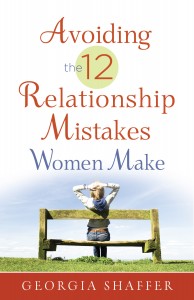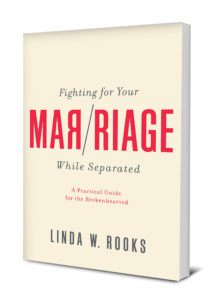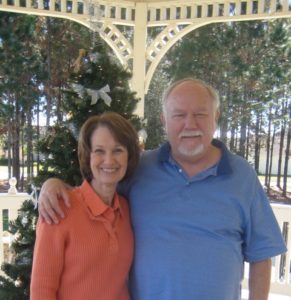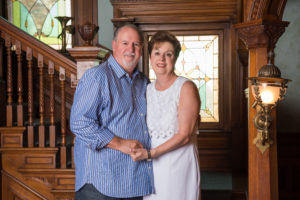Author Interview with Lynn Donovan
If you are a Christian married to an unbeliever, you have a unique challenge in walking out your faith. Lynn Donovan, author of Winning Him Without Words, refers to it as a spiritually mismatched marriage and has traveled this path herself. If you struggle with how to love both God and your spouse in a way that pleases each of them, I believe you will find hope and inspiration in what Lynn has to share with us today.
In addition to her book, Winning Him Without Words, Lynn is the author of two other related books as well: 10 Keys to Thriving in Your Spiritually Mismatched Marriage, and Not Alone, Trusting God To Help You Raise Godly Kids in a Spiritually Mismatched Home. Lynn has appeared on 700 Club Interactive, Focus on the Family, Dr. James Dobson’s FamilyTalk, and FamilyLife Today
But I will let Lynn introduce herself and tell you more about her story. Here’s Lynn.
Lynn: Hello everyone! I’m joining your community this week to share a bit about my God-sized story. I’m so thankful that Linda has asked me to be a part of your home.
My friends, my story is about a Prodigal child – me (Luke 15:11-31). I fled my childhood Sunday school days in my twenties. I left my loving Father for all the promises the world said were mine. I met my husband in these dark years and we fell in love. We were married and for the first three years everything was fine. But the world’s lure proved shallow, unkind and untrue. I heard my faithful Father calling in the distance and He wooed me.
I went running home into the arms of my Papa and was thrilled to once again have a relationship with God. But, I ran home dragging my unbelieving spouse behind me kicking and screaming all the way. To say that my husband was unhappy about this new “Man” in my life, was a serious understatement.
I am unequally yoked.
There are many women such as me who sit alone week after week in church. There are women who are married to men who say they believe and yet they are also like me, living in a spiritually mismatched marriage. We are committed to our marriage covenant and wish to honor our Lord no matter how we arrived in our spiritually mismatched marriage.
My journey has been a crazy adventure, filled with loneliness at times, as my husband and I view life through two different world views. On this journey I’ve had to face fears over my children’s salvation, as well as having to live with the disappointment of attending church alone, wanting to be a “normal” couple, and the most difficult—the rejection of my faith by my best friend on earth.
But don’t feel sad for me…. Because I serve the risen Savior and through His love and power, I have discovered that the unequally yoked can truly thrive while living with an unbeliever. We can grow in our faith, love and respect for our spouse, raise our children to a vibrant faith, and walk in the Presence of the Most High.
Linda: I’m looking forward to hearing what else you learned on this 22 year adventure, Lynn. But tell me, what does your husband think about this ministry?
Lynn: By the grace of God my husband is fully supportive of my ministry and he encourages me to help others who are also in spiritually mismatched marriages. I call that a “Way cool God thing.”
Thriving in a Spiritually Mismatched Marriage
Linda: Lynn, you mentioned to me that you discovered a powerful scripture that changed everything about your marriage.
Lynn: Yes, I did, it is: (Jesus) answered, “‘Love the Lord your God with all your heart and with all your soul and with all your strength and with all your mind’; and, ‘Love your neighbor as yourself.'” —Luke 10:27
Linda: How did this make a difference in your marriage?
Lynn: When you love God, His Son and the Spirit with all of your heart, soul, mind and strength you are transformed. Your mind is transformed and then disappointment and bitterness no longer has influence in your life. You discover an unending joy bubbles out of you, flowing onto your husband and your children. This kind of love transforms a heart, heals a body, restores a marriage, and leads little ones to faith.
I had to remove my eyes and expectations from my human husband and place all of my hopes upon Christ. When I did this our marriage moved into THRIVING. My husband found freedom to discover God in his own way without my manipulation and I found my expectations were replaced by God explanations. I was transformed by the love of God.
And Linda one of my favorite truths I share is this:
A man can ignore a nagging wife, but he can’t ignore the truth of a transformed life.
Linda: I like that. But tell me what do you think is the biggest struggle for those who have a spiritually mismatched marriage?
Lynn: Across the board, men and women, who are married to pre-believers (we like to call them pre-believers) struggle through a season of loneliness. In our book, Winning Him Without Words, the entire first chapter addresses this season. What I want to tell everyone who is unequally yoked is to press forward during this season. This is the training ground for growing your faith into a vibrant, strong and intimate love relationship with the Father.
You can overcome this. You can attend church alone and receive great blessing from your church family. You will discover the truth of Hebrews 13:5 God has said, “Never will I leave you; never will I forsake you.”
Ministering to Your Children in a Spiritually Mismatched Marriage
Linda: Many times I hear from people who are concerned as to how a spiritually mismatched marriage will affect the children. What do you say to that? And have you found specific encouragement in the Bible to help you on this walk?
Lynn: Yes, there is actually a passage in the Bible that was written just for us. God knew there would be unbelievers married to believers and that’s why 1 Corinthians 7:12-14 exists. Let’s read it from the Message translation as it is rich in meaning and implication. This verse specifically gives me great comfort as a mother raising children in a spiritually mismatched home.
For the rest of you who are in mixed marriages—Christian married to non-Christian—we have no explicit command from the Master. So this is what you must do. If you are a man with a wife who is not a believer but who still wants to live with you, hold on to her. If you are a woman with a husband who is not a believer but he wants to live with you, hold on to him. The unbelieving husband shares to an extent in the holiness of his wife, and the unbelieving wife is likewise touched by the holiness of her husband. Otherwise, your children would be left out; as it is, they also are included in the spiritual purposes of God. —1 Corinthians 7:12-14
I’m learning that when we as believers love Jesus and walk in the power and presence of the Holy Spirit, we impact our environment. And, in fact, we bring God’s will and purposes into our lives and into the lives of our children. The living presence of God within us becomes so powerful that, Paul tells us through the believing spouse every member in the home is sanctified. The living presence of God is so contagious, so powerful, that it creates an umbrella of safety over anyone who comes into that environment.
Linda: So are you saying that it is simply your faith, walked out in the home, which ministers to your children? Even though your husband has a different worldview, your faith is enough to point the children to God?
Lynn: Yes, we as believers are uniquely positioned to release the purposes, the love and the very power of God into our children’s lives. Our kids are then included in God’s plans for their lives. They are sanctified—set apart as holy unto the Lord. They belong to the Lord. When we grasp this truth, praying with faith through the Holy Spirit for our kids, we need not live in fear for their salvation. Our love, our example, our Jesus is always enough. I believe this promise for my children’s future and for their eternity.
Wow…… just WOW! Today if I can talk personally to your readers, I’d like to say, “Let the truth of this passage roar in your spirit. Your faith covers your home. This was a paradigm shift in my thinking and changed how I approached spiritual warfare for my kids and husband. My holiness covers them. They are under the love umbrella of God because an ordinary wife lives with Jesus in her heart and home. Of course, this isn’t a guarantee of their salvation but it is a great encouragement and it keeps me from living in constant fear for their eternity.
And Linda, our faith and our prayers truly impact our spouse. This year, 2019, after 27 years of contending for the faith of my husband, he was baptized on March 14th. As a special gift from the Father, this was ON our wedding anniversary. I pray that those reading this message will find their spouse comes to faith soon. And I affirm each one who is praying for an unsaved loved one. Don’t give up and believe. God is so good and loves your spouse.
Linda: That is so exciting, Lynn! What a beautiful testimony of living out your faith in a spiritually mismatched marriage. That must have been an absolute thrill for you.
Lynn: Yes, and I share more of my overcoming story in my new book, Marching Around Jericho, Praying Your Unsaved Spouse Into The Kingdom. The book launches in January 2020. I pray it reaches the hands of every spouse who walks this unique road of matrimony.
Linda: Thank you, Lynn. I know this is a serious battle for a number of people reading this interview, and we need a real prayer covering for our homes and our children. Would you like to close us with a prayer?
Lynn: Lord, let this passage bring freedom to every woman and man here today. Let the truth and the power that comes with your living and active Word permeate every place in his or her heart and home. I ask that the Holy Spirit would prove the truth of how the prayers of a righteous mama (or papa) availeth much. In Jesus name. Amen.
Linda, thank you for allowing me to share the hope that I have. Hope is a person, Jesus Christ.
I love you and count it a privilege to be here with your community.
Linda: It’s been a blessing to all of us to hear your story about thriving in the midst of a spiritually mismatched marriage. It’s a message many people need to hear. Please tell us where readers can find out more about your ministry, your book, Winning Him Without Words and your other books.
Lynn: You can visit me online at http://.spirituallyunequalmarriage.com





















